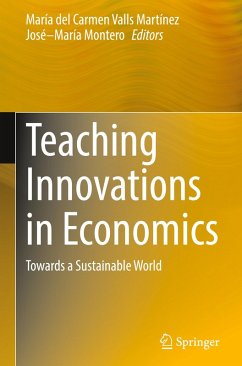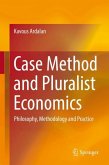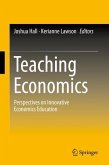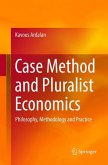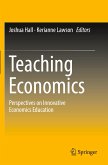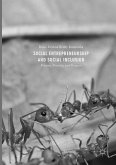This book highlights the latest technological innovations in economics education. Economics, as a discipline, not only studies the relationship between ends and scarce means, which can be used alternatively, but also serves as a social science that uses historical data to predict future events-a task complicated by the influence of human behavior. In economics, a solid theoretical foundation alone is insufficient; practical application requires a deep understanding of statistics. With the vast amount of information available today, data processing is now performed using specialized software.
Consequently, teaching economics demands a wide range of complex skills that have significantly evolved in recent years, driven by the growing interest in educational innovation among professors and scientists, further accelerated by advancements in new technologies. Moreover, economics education is increasingly aligned with the global concern for sustainability, as emphasized in the United Nations' Agenda 2030. Professors are now integrating sustainability into syllabi and teaching methodologies.
This book covers key topics such as:
Technological and innovative advancements in economics education.New teaching-learning theories and models in economics education.The impact of digital transformation on economics education.The role of artificial intelligence in economics education.Addressing special educational needs in economics education.Evaluation of the teaching-learning process in economics.Assessment of student learning in economics.Development of materials and tools for economics education.Final projects (Undergraduate and Master's) in economics.
Authored by leading professors and researchers in the field, this book presents a collection of chapters that rigorously explore teaching innovations in economics.
Consequently, teaching economics demands a wide range of complex skills that have significantly evolved in recent years, driven by the growing interest in educational innovation among professors and scientists, further accelerated by advancements in new technologies. Moreover, economics education is increasingly aligned with the global concern for sustainability, as emphasized in the United Nations' Agenda 2030. Professors are now integrating sustainability into syllabi and teaching methodologies.
This book covers key topics such as:
Technological and innovative advancements in economics education.New teaching-learning theories and models in economics education.The impact of digital transformation on economics education.The role of artificial intelligence in economics education.Addressing special educational needs in economics education.Evaluation of the teaching-learning process in economics.Assessment of student learning in economics.Development of materials and tools for economics education.Final projects (Undergraduate and Master's) in economics.
Authored by leading professors and researchers in the field, this book presents a collection of chapters that rigorously explore teaching innovations in economics.

